Search Results
Showing results 641 to 660 of 956

Pringles Pinhole Camera
Source Institutions
An ordinary camera has a lens that makes an image on film. In a pinhole camera, a small hole replaces the lens.

Be A Pasta Food Scientist
Source Institutions
In this activity, learners of all ages can become food scientists by experimenting with flour and water to make basic pasta.

Comet Cratering
Source Institutions
Make impact craters with marbles (or rocks or washers) in a container of flour. Find out what you can learn about your "comets" by the craters they make.
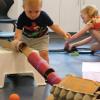
Balls and Ramps
Source Institutions
In this activity, learners use simple, everyday materials to experiment with balls and ramps.

Marshmallow Models
Source Institutions
No glue is needed for learners of any age to become marshmallow architects or engineers.

Catch the (Sound) Wave!
Source Institutions
See and hear how sound waves travel through different types of materials. Extend the experiment online and learn how you can "see" with sound waves using ultrasound.
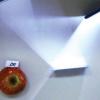
Light Maze
Source Institutions
In this activity, learners will explore light with reflective surfaces. Learners will make predictions and share their observations as they experiment with directing a beam of light.
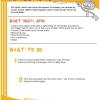
Ocean in a Bottle
Source Institutions
In this simulation activity, learners observe what can happen when ocean waves churn up water and oil from an oil spill.

What Does Spit Do?
Source Institutions
Some animals can swallow food whole, but humans have to chew. In this activity, learners will investigate what saliva does chemically to food before we even swallow.
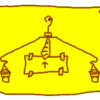
Make a Balance / Scale
Source Institutions
In this activity, learners create a kind of balance device using a wire coat hanger, some string, and paper cups.

Arrows
Source Institutions
In this activity, learners surprise their eyes with an optical illusion involving arrows made out of pipe cleaners.
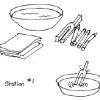
Good Vibrations
Source Institutions
This lesson (on pages 15-24 of PDF) explores how sound is caused by vibrating objects. It explains that we hear by feeling vibrations passing through the air.

Drops on a Penny
Source Institutions
In this activity, challenge learners to predict and investigate how many water drops they can fit on one penny.

Light as Air
Source Institutions
In this physics activity (page 6 of the PDF), learners will demonstrate air has weight by comparing an inflated balloon to a deflated one.
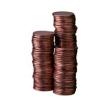
A Penny Saved is a Penny Heard
Source Institutions
In this activity (11th activity on the page), learners use pennies to test their hearing acuity.
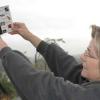
Ready to Observe: Enhance Your Telescope Experience
Source Institutions
This fun hands-on astronomy activity uses a variety of simple props to help learners understand why they see what they see in a telescope.
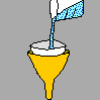
Filtering
Source Institutions
Make a quick and easy filter from household materials. A filter will catch any solids suspended in a liquid and filter them out. By using a filter, learners can discover amazing things.

Seeing in the Dark
Source Institutions
In this activity (17th on the page), learners investigate why you cannot see colors in dim light.

Make a Comet Model and Eat It!
Source Institutions
In this activity, learners build models of comets, using edible materials, to learn about comets' structure.
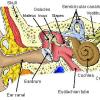
Model Eardrum
Source Institutions
In this activity (last activity on the page), learners make a model of the eardrum (also called the "tympanic membrane") and see how sound travels through the air.
